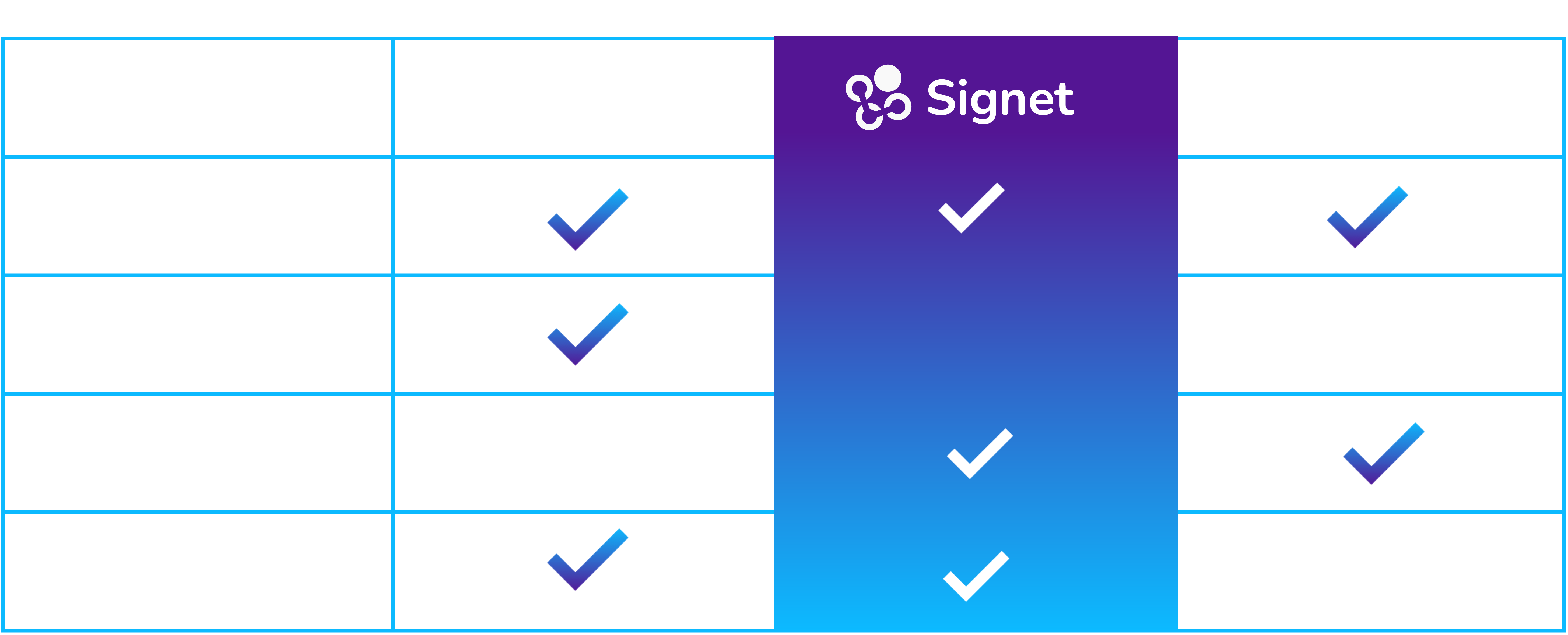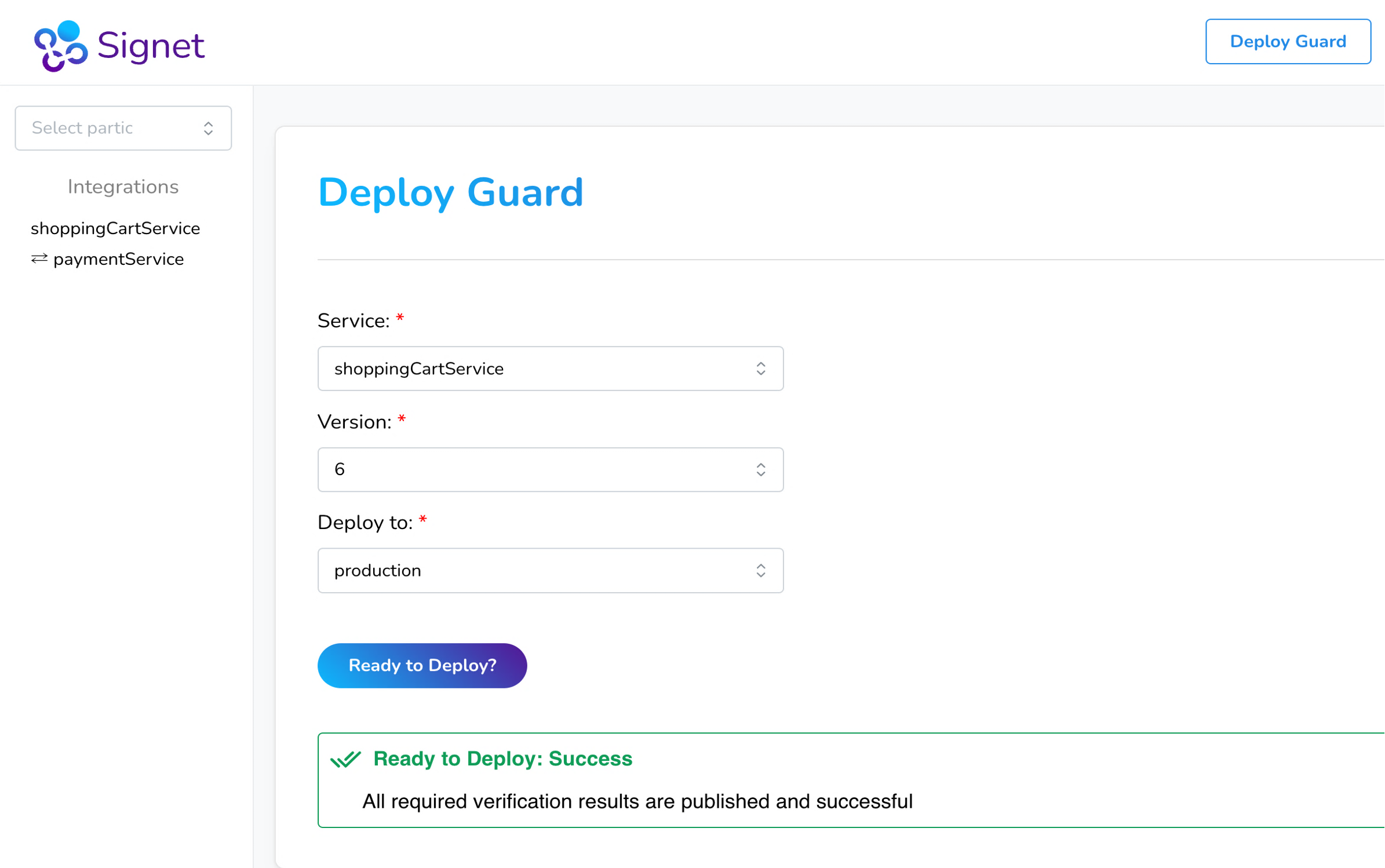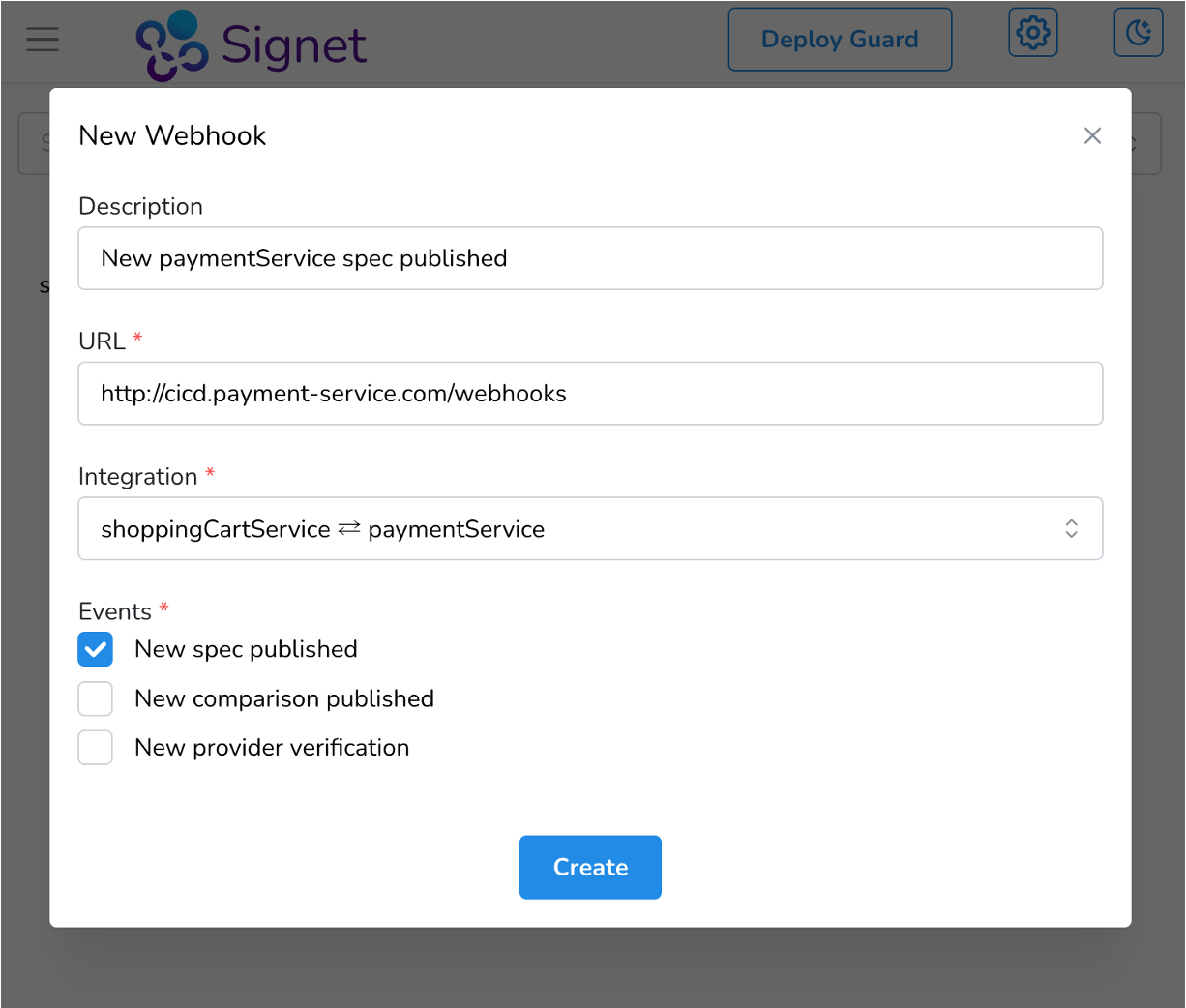Introducing Signet
Signet is an open-source, self-hosted framework for spec-driven contract testing of microservices.
It is designed for companies that are experiencing the pain points of integration and E2E testing, and want an easy way to introduce contract testing. Companies with existing service tests do not need to write any new unit tests, and provider verification is supported as a first-class feature. Signet is also deployment-aware, so teams can easily check if their service is safe to deploy to an environment. Additionally, Signet can be fully integrated with CI/CD in order to automate contract testing and reduce the need for more expensive tests.

Core Features
Spec-driven Approach
Signet uses a spec-driven approach to contract testing in order to maximize the independent deployability of services. The authoritative contract is an OpenAPI spec which both the consumer and provider services are responsible to conform to. Once the spec is published to the Signet broker, both services can be implemented in parallel and tested independently. The consumer team uses a consumer contract to represent the behavior of the consumer, and this contract is compared with the API spec to test the consumer's side of the integration. The provider team tests the implementation of the provider service directly against the API spec.
Self-hosted
Signet is an open-source framework that is intended to be self-hosted.
It does not provide a managed option that will abstract away deployment, scaling, or high availability.
With those qualifications, Signet does provide two deployment strategies aimed at making it simple to self-host.
For companies that already use AWS, the signet deploy CLI command provisions an ECS Fargate cluster and deploys the Signet broker along with all supporting infrastructure.
An admin only needs their IAM credentials to deploy the broker to their existing AWS cloud.
For companies using other cloud providers or hosting on-premises, Signet provides a Docker Compose file to make it as simple as possible to get started.
Easy to Adopt
Once a company is hosting the broker, Signet offers two features that reduce the typical startup costs associated with contract testing. For consumer teams, the CLI offers the ability to record existing service tests in order to generate the consumer contract. This eliminates the need for developers to write new tests in order to adopt contract testing.
Signet also offers built-in support for provider verification. After a provider team has implemented their service, Signet can generate tests based on the API spec. These tests are executed against the provider service in order to verify that it correctly implements the spec.
Dedicated Broker
Rather than storing contracts in version control, Signet uses a broker to implement deployment-awareness and CI/CD integration.
Signet offers deployment-awareness through a feature called Deploy Guard which keeps track of deployments in each environment. When a developer wants to know if it is safe to deploy a new version of a service, Deploy Guard uses deployment data to identify the relevant set of contracts. Given these, Deploy Guard can check whether:
- The service is compatible with all of its consumers which are deployed in the environment.
- All of the service's providers are deployed in the environment.
- All of the service's providers are compatible with the service.
If all of these conditions are met, Deploy Guard informs the developer that it is safe to deploy to that environment.

Deploy Guard is also available through the Signet CLI, allowing CI/CD pipelines to gate deployments based on what is already deployed. Along with Deploy Guard, the rest of the contract testing workflow can be automated in CI/CD using the CLI. The Signet broker ensures that there is a centralized source of truth for every pipeline implementing contract testing. Event-driven workflows are also supported by subscribing CI/CD pipelines to receive webhooks from the broker based on various contract testing events.
